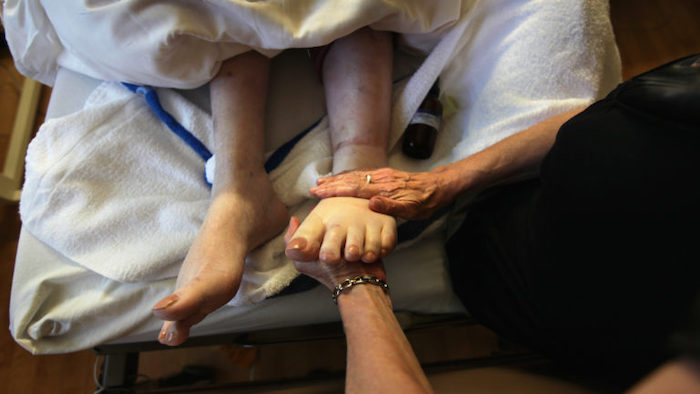– These are the most common regrets people have before they die

From staying in sexless relationships to putting off downsizing, these are the issues that come up time and time again
There are few as well acquainted with the dying, and their regrets, as death doulas. Also known as end-of-life doulas, they provide support to people through terminal or life-limiting illnesses by improving their quality of life, and death.
This encompasses everything from helping with logistics to providing emotional support to those at the end of life and their loved ones.
i spoke to three death doulas to understand the biggest regrets of the dying, the living who love them, and steps we could take to avoid those same regrets and have a better end of life.
Staying in unhappy (and sexless) relationships
Emma Clare, who is a chartered psychologist and death doula, says that the most common, though unspoken, regret she hears is about relationships.
“I often hear people say that they wish they’d left either unfulfilling or unhappy relationships sooner. A lot of people have regrets about spending a large part of their life in situations that didn’t feel true to themselves or have any fulfilment.”
She says when we’re confronting death, we feel a lack of intimacy and closeness acutely – including sexual intimacy.
“As humans we look for intimacy and that doesn’t go away because we’re dying. If anything, it increases because people are aware they have a limited time left and they want to have that connection with other people.”
Not downsizing or decluttering
“We all know we’re going to die, but we just put it to the side, even with a terminal diagnosis,” says Jane Depledge, a doula based in North Powys, Wales. When patients are told that treatment is going to stop, that lack of preparation “hits them”, she says. Getting a will in place, transferring over health insurance, or discussing their wishes are all simple things that we don’t want to face, but will feel better for it.
Emma Clare adds that this includes very practical decisions.
“People wish they’d downsized their home earlier and cleared out their stuff, and now they’re aware their often adult children are going to have to deal with that and feel a big sense of guilt. That means regret from the family too: they’re then left sorting that out and haven’t had the conversation about what was and wasn’t treasured and should be kept.”
Being in hospital instead of at home
“People often don’t realise they have choices”, says Depledge, so when a person is dying they panic and send them to hospital. Though for some people hospital care is essential, she says it is always worth asking and looking into ways their loved one could die at home.
Not being prepared
The emotional and physical burden of caring for someone at the end of life can take its toll on both the carer and the patient, who may feel huge guilt at being ‘a burden’. People often regret being inadequately prepared for everything that needs juggling, and not realising what support they can get.
“Carers can claim immediate Government grants to care for someone who is dying,” explains Depledge. “Knowing that could have enabled someone to take time off work or give up work to care for and be with a loved one.”
Not being able to say goodbye to friends
When a person is dying, they tend to want to surround themself with the things and people they love most – but so often, they are lonely, says Depledge.
“I think a lot of people avoid visiting people when they get a terminal diagnosis because they worry they don’t know what to say,” she explains. “But actually I hear a lot of upset from the people who are dying, saying that they feel like their friends have gone quiet or disappeared and they feel very lonely. And that’s needlessly lonely because at the funeral there are lots of people there.”
Not saying how you really felt
Amanda Waring, a death doula working in West Sussex says that the biggest regret she comes across is from people who feel they didn’t “heal their relationship, or speak frankly”.
“Regret stems from a lack of honesty. This is true even for exceptionally difficult conversations where someone has wronged the other and the only catharsis is if you bring it into the open and it takes a lot of courage.”
She says this can range from apologising for harsh words spoken at a bedside, to being honest about deeper rooted, historical conflicts, to sharing feelings of love and pride that were perhaps not made clear before.
“Bravely speaking up and trusting your gut is the key to avoiding all regrets really,” adds Emma Clare.
Complete Article ↪HERE↩!
